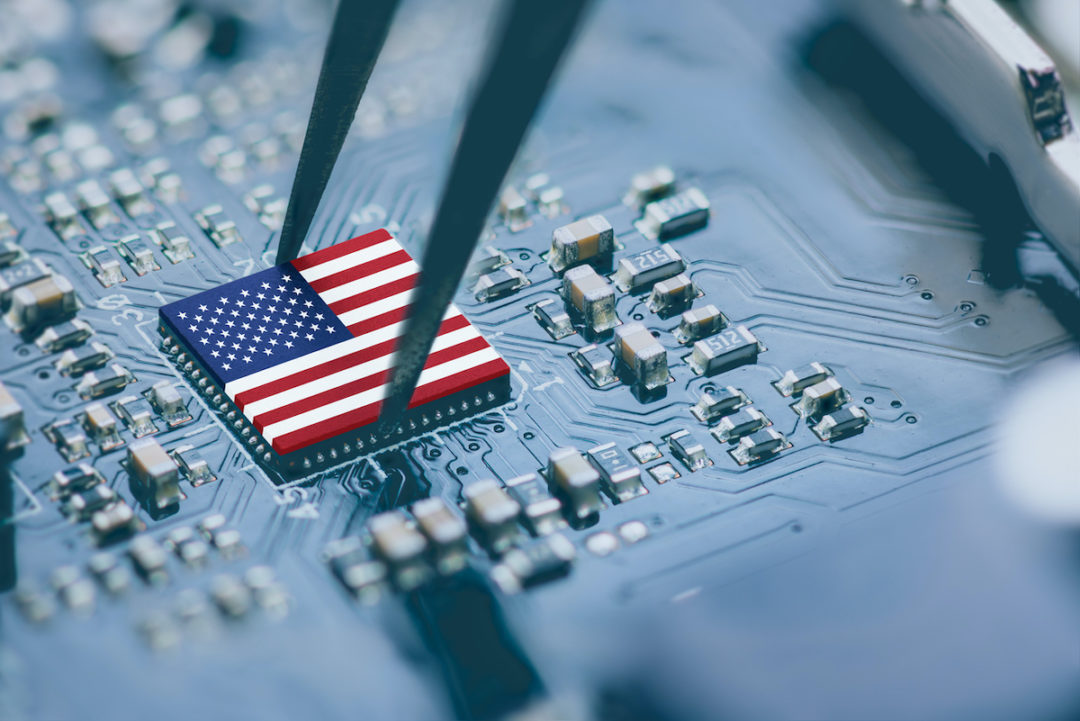
For the past 15 years, China, a country of great concern to the U.S., has developed a fairly impressive state-led, vertically integrated semiconductor manufacturing industry. Despite the obvious national security concerns of such an endeavor, China has been able to accomplish this largely unchecked. The complex, expensive, and opaque nature of the global semiconductor ecosystem has created national security concerns that the U.S. government is belatedly addressing, including supply chain diversion, export control circumvention, and intellectual property (IP) theft, all bolstered by free-flowing U.S. investment dollars. But now, the financial engine driving those investments will come to a halt, and it's about time.
The U.S. government has been steadily evolving its regulatory program through increased sanctions and export control laws, with highly visible enforcement actions targeting sensitive technologies. Most notable among these efforts to ensure American capital is not used to advance foreign military capabilities is President Biden’s recent Executive Order on Addressing U.S. Investments in Certain National Security Technologies and Products in Countries of Concern. The order bans certain investments in semiconductors and mandates the reporting of others, in an attempt to stop U.S. capital from facilitating advancements in military and intelligence technologies within countries of concern.
This also places increased pressure on manufacturers in an attempt to prohibit U.S. persons from supporting China’s efforts to skirt existing chip export controls. The U.S. has expanded trade restrictions to include items such as toasters, hair dryers and microwaves — all of which contain chips — and set up a Disruptive Technology Strike Force to investigate and prosecute illicit actors trying to acquire sensitive technology. The government has been taking baby steps for some time, but now, with this executive order and expanded enforcement focus, the industry has no choice but to take notice.
While many U.S. chipmakers are public corporations required to appropriately address national security concerns alongside corporate profits, calls to increase transparency in the industry have largely been ignored. Now, American-made chips, known for their advanced capabilities, have been appearing in technologies used to suppress the Uyghur ethnic minority in China and have surfaced in weapons of war used by Russia against Ukraine.
In response to these discoveries and the escalating “Chip War” between Washington and Beijing, countries around the world have been pulled into the fray. For example, as Russia has tried to circumvent such restrictions, U.S. officials have steadily ratcheted up their rules, placing sanctions on dozens of companies and organizations in Russia, Iran, China, Canada, and elsewhere. And the stakes are only getting higher. Rampant speculation surrounding China’s alleged stockpiling of semiconductor equipment further heightens concerns about the risks posed by unchecked chip proliferation. Recently, it’s been alleged that Huawei Technologies Co. is receiving an estimated $30 billion in state funding from the Chinese government to build a collection of secret semiconductor-fabrication facilities across China. These actions are blatant enough to draw scrutiny from governments, the media, and, begrudgingly, the semiconductor industry itself.
The increasing importance of the semiconductor industry in shaping international relations is evident. But has the industry been awakened enough to acknowledge the scope of past failures and feel culpable enough to actually increase transparency in supply chains? It may have no choice.
The Biden administration is pressing semiconductor companies for more transparency with regard to their supply chains. Last September, the Department of Commerce launched a Request for Information (RFI) on the global semiconductor supply chain. The results provided insight into the complexity of the semiconductor supply chain, and confirmed that chip consumers do not always know where their chips originated. While RFI responses were voluntary, Commerce Secretary Raimondo said in an interview she would consider compelling companies to disclose information about their supply chains if they did not do so voluntarily.
However, it would take a willful suspension of disbelief to think that regulations and disclosure are all that is needed to keep sensitive technologies out of the hands of China. The semiconductor industry operates within an intricate web of global markets and international collaborations, and exported products are notoriously difficult to track within the global supply chain. This is why those intent on diverting sensitive and controlled goods, like weapons of war, for restricted purposes or to prohibited areas, can often do so undetected. The ability to track the buyers, movement, and usage of semiconductors in sensitive applications is crucial to preventing unintended consequences and risks to global security and stability. This level of visibility can shed light on supply chains and end-user applications, as well as help foster open dialogue and collaborative efforts between nations.
At the corporate level, businesses must take a proactive stance on safeguarding their supply chains from manipulation in order to avoid penalties under the executive order. Mitigating supply chain and counterparty risk by conducting thorough due diligence on suppliers, moving beyond traditional list-based screening for risk assessment, and embracing technology-driven traceability solutions are important steps towards maintaining the integrity of supply chains and bolstering the effectiveness of protecting interests beyond compliance.
The ongoing “Chip War” and the far-reaching legislation it has inspired have guaranteed an increasingly pivotal role for the semiconductor industry in geopolitics and global stability. Transparency in this industry is critical in the face of unprecedented supply chain diversion and the ongoing uncertainty of future events. By investing in international cooperation and embracing data and technologies, we can illuminate the path to secure semiconductors and a safer world — a vision that transcends geographic and political borders and lays the foundation for a brighter future.
Anne Marie Lacourse is a global trade industry advisor at Sayari.







